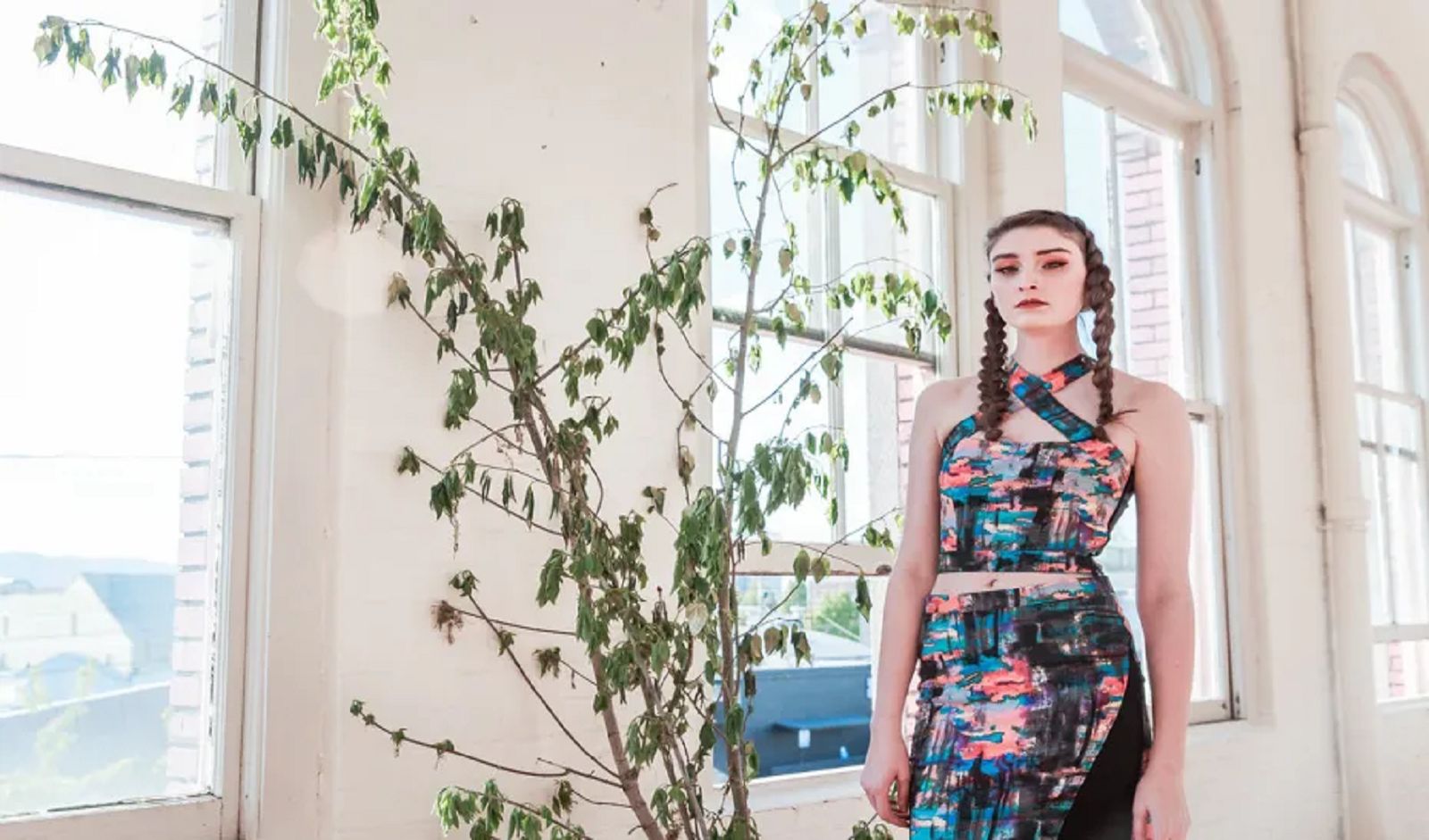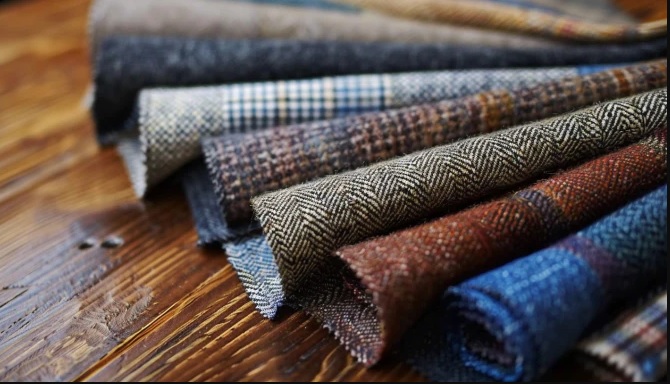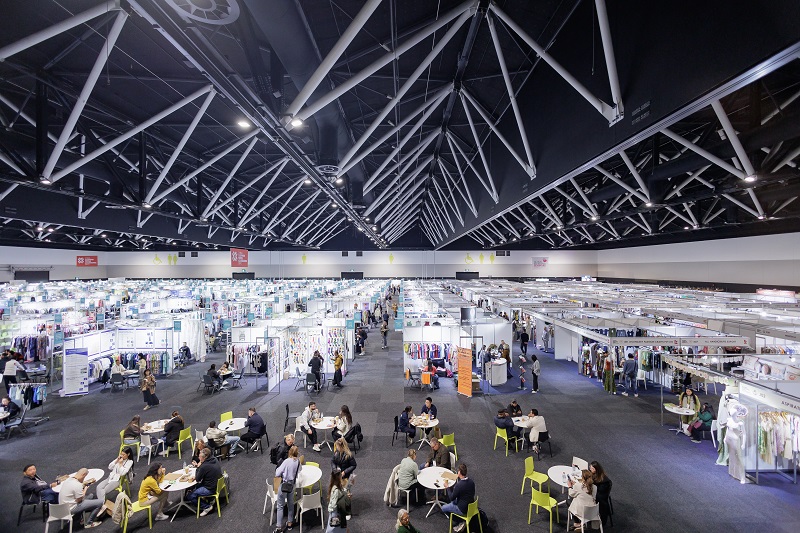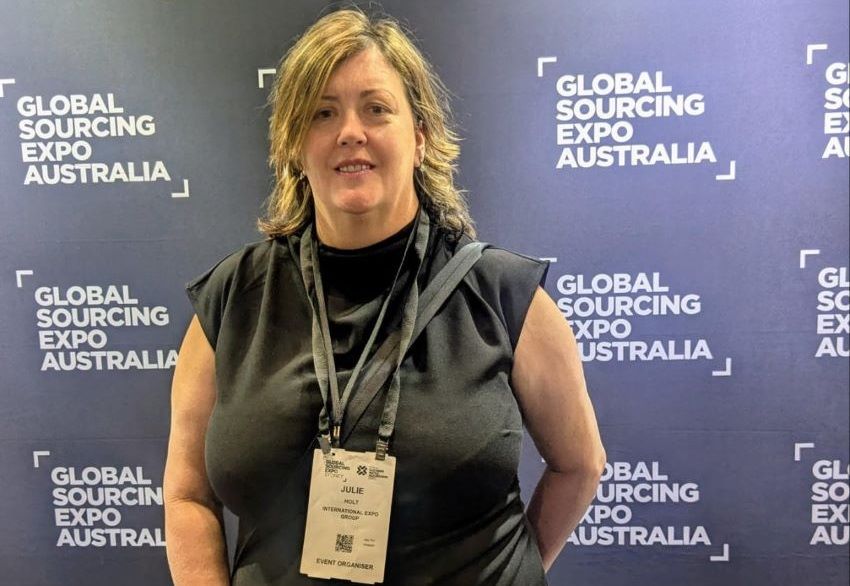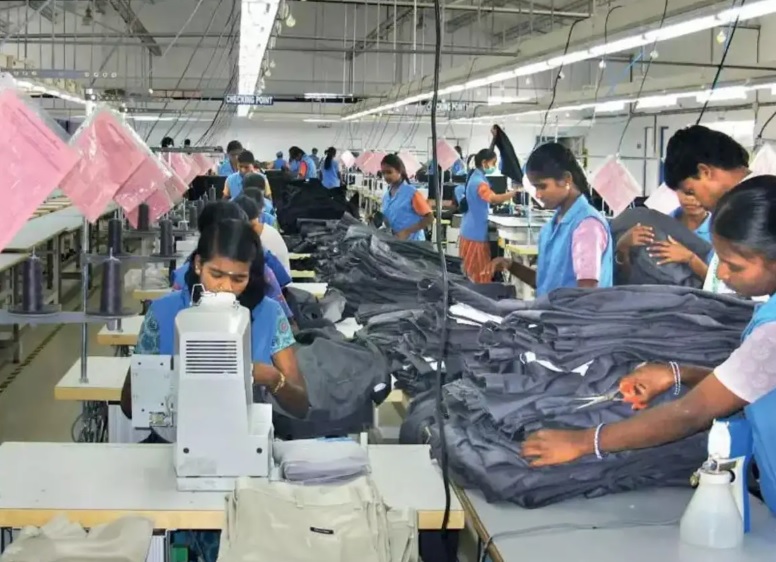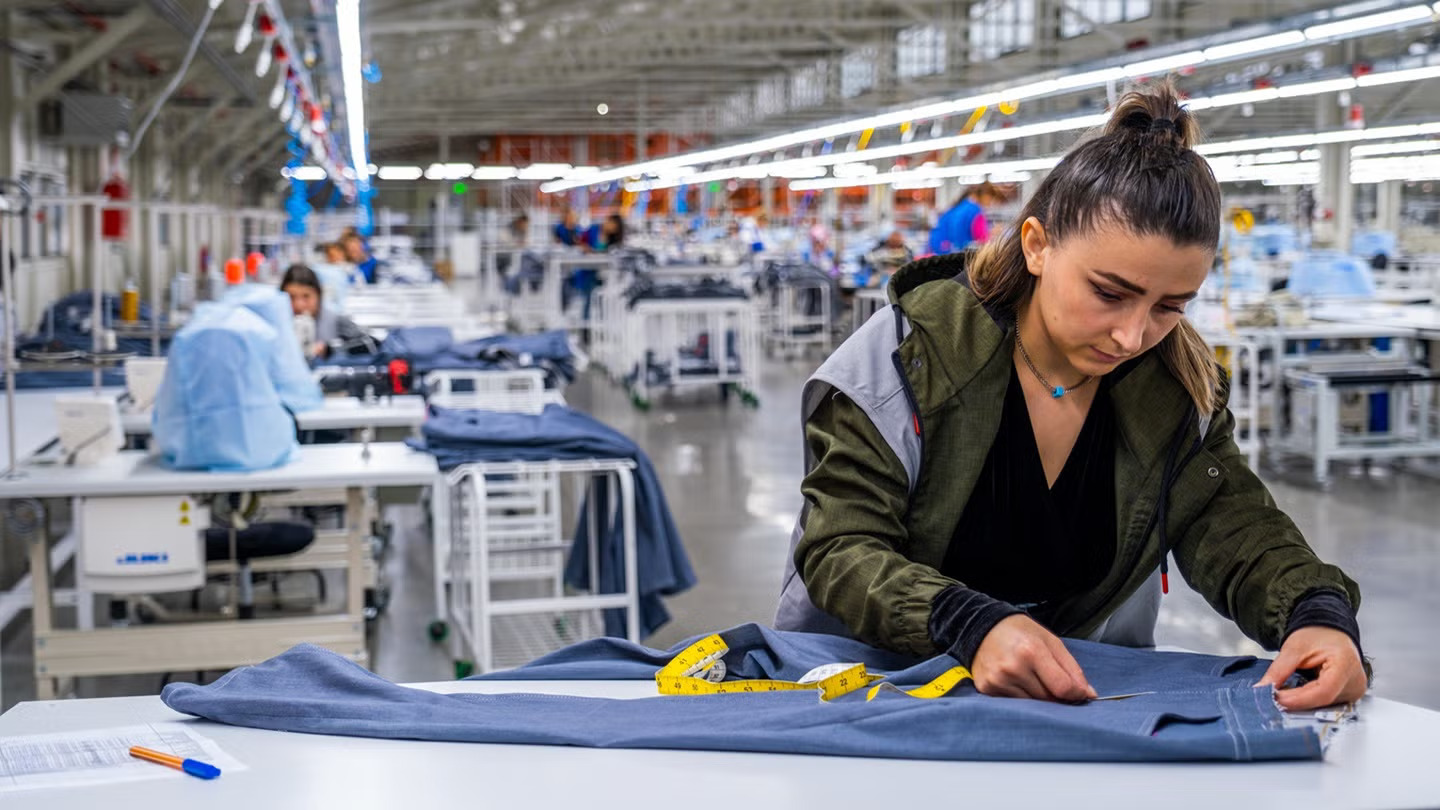FW
US denim brand Patagonia is changing the way denim is made—using environmentally friendly dyes and manufacturing processes, fair trade certified sewing practices and 100 per cent organic, pesticide-free cotton.
Typically denim production involves the use of dangerous chemicals to grow conventional cotton; dyeing produces millions of gallons of waste water and, often, jeans are sewn in factories where workers may not be treated fairly. Patagonia’s dyeing and manufacturing process uses dyestuffs that bond more easily with cotton and minimise destructive effects of indigo dyeing, rinsing and garment washing processes used to create traditional denim.
Patagonia uses 84 per cent less water, 30 per cent less energy and emits 25 per cent less Co2 than conventional synthetic indigo denim dyeing processes. All Patagonia denim is made with organic cotton that is grown without chemical or synthetic fertilisers, poisonous pesticides or herbicides. The entire process avoids sandblasting, bleaching and stonewashing jeans.
All this greatly reduces the environmental impact of denim supply chain. Founded in 1973, the company is recognised internationally for its commitment to authentic product quality and environmental activism. In addition to the six denim styles, Patagonia has grown its fair trade clothing styles from 33 in spring 2015 to 192 in fall 2015.
www.patagonia.com/us/denim
German circular knit machine manufacturer Mayer & Cir makes the entire range of machines required for making modern textiles: fabrics for home textiles, sportswear, nightwear and swimwear, seat covers, underwear and technical uses. Now the company is ready to launch a spin knit machine -- a machine that spins and knits at the same time.
A single jersey machine for elastomer plating uses the tried and trusted relative technology, which means gentle stitch formation. The needle and sinker guidance also reduces energy consumption. At the same time, this single jersey machine delivers peak productivity along with a significant improvement in process reliability. The machine has an improved yarn guide for perfect yarn feed. Stripe patterns can be programmed swiftly and simply on a touch display. Another machine that knits a product is the jacquard plus machine.
Mayer offers cutting edge interlock, striper, single jersey and mattress fabrics machines. These machines help increase productivity, improve process reliability and offer consistently high and reliable quality knits. These machines use significantly less fresh needle oil, as a result of a recycling process developed by Mayer. In fact, many of Mayer’s machines are equipped with a needle oil recycling system.
www.mayerandcie.com/
The Jammu & Kashmir government failed to allocate funds to the National Institute of Fashion Technology (NIFT) set up there six years ago. NIFT was sanctioned in 2009 by the government at an estimated cost of Rs 188 crores. Nearly 90 per cent of this was to be paid by the Centre and the remaining 10 per cent by the State.
As per documents, the state government was asked to allocate land for the project, which was subsequently identified at the Industrial Estate Ompora. It was and handed over to the Union Ministry of Textiles at an annual rent of Re 1 per year on a lease for 90 years.
The NIFT campus is nowhere in sight as of now, however, it operates from a temporary location at Rangreth Industrial Estate, which is provided by J&K SIDCO. Kifayat Rizvi, Managing Director SIDCO said that the institute failed to attract students because of lack of faculty and other facilities. SIDCO, though has already taken up the matter with NIFT authorities to make the institute functional at Ompora, he added.
Local entrepreneurs had demanded the establishment of NIFT. A group of entrepreneurs said that they thought it would be a boon in the Valley as students trained at the institute could contribute towards introducing new designs and technology in segments such as handicrafts, etc.
The Bangladesh Garments Manufactures and Exporters Association (BGMEA) has appointed Siddikur Rahman as President for next two years 2015-2016. BGMEA’s vice-president, Shahidul Azim affirmed this news. Current President, Atikul islam completes his term in September this year, sources from BGMEA said. Though there should have been an election, two forums of the members of BGMEA, Sammilita Parishad and Forum, had already reached a consensus regarding sharing posts among themselves without elections.
Sammilita Parishad leader Siddiqur Rahman, would hold the post of President, according to the negotiation. Source say the next president will be selected from Forum after two years. BGMEA’s vice-president Shahidul Azimstated that selected leaders would be efficient and that the new leaders were sincere about their duties and responsibilities. When he was asked why there wasn’t any election, Azim said that the two groups Sammilita Parishad and Forum participate in each year’s elections. The decision was made after an interaction and dialogue with the two groups.
The posts of vive-presidents will increase in the next committee and there will be 35 new posts and there are 27 in the present committee. The total number of voters were, 3,196 in the last election, however, it decreased to 2,168 this year.
Aditya Birla Group firm Grasim Industries has said that its consolidated net profit declined marginally by 0.51 per cent to Rs 484.67 crores for the first quarter ended June 30. The company had posted a consolidated net profit of Rs 487.13 crores during the same period of the previous fiscal, Grasim Industries said in a BSE filing.
The company's consolidated net sales stood at Rs 8,507.98 crores in the April-June quarter, up 6.67 per cent compared with Rs 7,975.3 crores during the same period last year. Consolidated revenue from its viscose staple fibre (VSF) and wood pulp segment was Rs 1,664.37 crores this quarter as against Rs 1,558.58 crores year ago. Its consolidated revenue from chemicals division was Rs 485.18 crores as against Rs 414.2 crores last year.
Revenue from other segments, which constitute mainly textiles, were at Rs 136.65 crores compared with Rs 148.57 crores in the same period in the previous year. Grasim is one of the dominant players in the ready-to-stitch over the counter fabric industry. It has also ventured in to ready-to-wear category by launching readymade garments through distribution network and its exclusive showrooms.
www.grasim.com
Aquafil collaborates with Speedo USA for a take-back program that will allow Speedo USA’s post-manufacturing swimwear scraps to be upcycled into Aquafil’s 100 per cent regenerated ECONYL nylon. Leftover fabric scraps get a new life with this program, which allows them to be turned back into raw nylon fibre and finally, new swimsuits. The new Speedo PowerFLEX Eco swimwear fabric is made from ECONYL and is endlessly recyclable. This limitless recyclability creates a closed-loop manufacturing partnership between the two companies.
Giulio Bonazzi, Chairman and CEO, Aquafil said that they were challenging apparel manufacturers to be more sustainable and restructure their supply chain to divert waste from landfill. Aquafil’s partnership with Speedo shows the company’s commitment to the environment and their ingenuity in creating products from materials that can be recycled an infinite number of times is another feature of the programme, Bonazzi added.
Post-production fabric waste, in the swimwear industry, was not suitable for traditional recycling due to its complex technical composition. However, with Aquafil’s new technology this is now possible. The new technology can turn swimwear fabric and other blended waste materials into new raw nylon. The cutting-edge ECONYL Regeneration System takes manufacturing byproduct waste and nylon materials that have reached the end of their product life, such as abandoned fishing nets and old carpets, and re-engineers them into high-quality ECONYL Nylon 6 for the production of new carpets, sportswear and swimwear.
Both Aquafil and Speedo USA, with this take-back program, will use the regeneration process to separate usable nylon from Speedo’s blended post-production fabric scraps. The used nylon will then be upcycled into raw nylon fibre, which can be made into new PowerFLEX Eco swimwear.
B’desh commerce minister Tofail Ahmed has announced that they are going to build a garment village in Chittagong, with an aim to increase apparel exports which is expected to touch $50 billion by 2021. Ahmed said the garment village in Chittagong would be on the lines of the hub currently being built at Bausia in Munshiganj. He was speaking at the inauguration of the three-day Bangladesh Apparel and Safety Expo in Chittagong. However, there was no mention of when the garment hub will begin operations.
The Bausia garment village, is being developed by a Chinese firm at a cost of $2.3 billion. It has more than 200 factories from where Bangladesh expects to export goods worth $3 billion to $5 billion each year once the factories begin production. Ahmed urged retailers to pay better prices for apparel items sourced from Bangladesh as they receive some of the lowest price offers from them. He added as the industry’s future is bright, the $50 billion export target will not only be met, but will also exceed by 2021.
Nasiruddin Ahmed Chowdhury, former VP of Bangladesh Garment Manufacturers and Exporters Association (BGMEA) said by excluding development of the port city of Chittagong, it would not be possible to achieve the $50 billion export target. Chittagong is considered a gateway for Bangladeshi exports as more than 90 per cent of the country’s international trade is handled through this port.
Los Angeles knitting mill SG Knits and Texworld USA in New York are two companies that have collaborated for business after meeting two years ago. Lauren Greenberg, SG Knits creative director and husband Steve Greenberg, SG Knits’ CEO and President were back at Texworld USA during the show’s recent July 21-23 run at the Javits Center. The Greenbergs, along with their USA partner, Norberto Menendez, who runs United Pacific Group (UPG), a full-package garment production facility in the Dominican Republic, met larger retailers and brands such as Macy’s and Nordstrom and California labels such as Splendid/Ella Moss, at the show.
Sun Dragon Import, a Los Angeles-based supplier of specialty yarns participated for the first time in Texworld and Ching Duncan, Sun Dragon President said that they were exploring the New York market and were likely to get some South America and Canada exposure too.
50-year-old producers of textiles and hand-worked scarves for large European brands, Mumbai-based Panna Textile Industries, were first time participants at Texworld USA. Akash Poddar, the company representative interacted with attendees, showing them the workmanship on a hand-painted, embroidered scarf Panna created for the Spanish brand, Desigual. Poddar said that the company was looking at entering the US market.
Speaking about Texworld USA, marketing manager for Los Angeles knitting mill Design Knit, Pat Tabassi said that she sees a rising interest in domestic production from those who attend Texworld. However, she observed that building infrastructure could take time.
The US will help Bangladesh reach its goal of exporting readymade garments worth $50 billion by 2021. The readymade garment sector has been the engine behind the remarkable story of Bangladesh’s economic growth. The United States is the largest single buyer of Bangladeshi garments. It works closely with the Bangladesh government, brands, factory owners, and unions to strengthen workers’ safety and labor rights and to foster a stronger industry.
The US will work with two Bangladeshi banks to fund a $22 million credit guarantee to facilitate loans for safety improvements in the country’s readymade garment factories. It has been working to improve labor conditions and support the freedom of association in Bangladesh.
Through grants to the Solidarity Center, USAID provided training to approximately 11,000 readymade garment workers on collective bargaining, union leadership, industrial dispute resolution, media and organisational democracy.
The US can use tariff revenues generated from Bangladeshi garment exports as aid to improve the labor standards of garment factories in Bangladesh. The readymade garment sector accounts for 81 per cent of Bangladesh’s overall exports. About 5,000 factories employ about 3.6 million workers (of a total workforce of 74 million). The country has an aim of reaching $50 billion in exports by 2021.
Nahar Spinning Mills has reported a net profit of Rs 26.38 crores for the first quarter ended June 30, 2015, due to lower raw material costs. The company had posted a net loss of Rs 11.47 crores in the year-ago quarter. Net sales in the quarter under review, however, dropped by 2.8 per cent compared to the corresponding quarter of the previous year. Raw material cost declined by 18.6 per cent on a year-on-year basis.
Ludhiana-based Nahar was incorporated in 1980 and is known for hosiery and knitwear garments like T-shirts. In 1992, as a measure of backward integration, the company diversified into the spinning industry. The company has five lakh spindles and 1,080 rotors. Nahar has put up a mercerising cum dyeing plant. The superfine quality yarn produced by the unit is being used by manufacturers of fine quality garments for exports. The unit caters to the domestic hosiery garment market as well as export markets. It is one of the largest integrated textile players in and the second largest cotton yarn manufacturer in India. Products go to reputed international brands. About 60 per cent of the company’s products are exported.
www.owmnahar.com/

